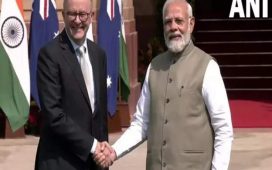FTP 2023 emphasises ease of doing business, streamlining of processes and reducing transaction costs, a greater focus on ecommerce exports and bringing on board district- and state-level players to raise outbound shipments.
The policy also seeks to spur bilateral trade in the Indian rupee, pitching it as an option to countries facing currency failure or dollar shortages.
There are no fresh big-bang fiscal incentives in the policy that will come into force on April 1.
Exporters will receive support through the WTO-compliant tax and duty remission schemes – the RoDTEP (Refund of Duties and Taxes on Exported Products) and RoSCTL (Rebate of State and Central Taxes and Levies).
A special one-time amnesty scheme for default in export obligations will be made available until September 30 that will allow exporters to settle defaults on the advance authorisation and the EPCG (Export Promotion Capital Goods) schemes.
The FTP allows “merchanting trade,” which typically involves shipments of goods from one foreign country to another without touching Indian ports, subject to certain riders.This will encourage Indian intermediaries to take advantage of significant export opportunities in and around regional trade hubs such as Singapore and Hong Kong.
Commerce and industry minister Piyush Goyal said India’s exports may hit $765-770 billion this fiscal year, higher than the initial $750 billion target.
“Grassroots-led export promotion is a big priority as the FTP 2023 provides a major thrust to strengthen India’s growing stature in global trade,” Goyal said.
Departing from the earlier five-year trade policies, the commerce and industry ministry has instead announced an open-ended “dynamic” policy that will be updated as required, given the fast-shifting global economic environment.
India’s share in overall global trade is just about 2.4% now, so there is scope to scale it up despite strong external headwinds, said Santosh Sarangi, director general of foreign trade (DGFT).
Electric vehicles, vertical farming equipment, wastewater treatment, rainwater harvesting systems, and green hydrogen will be eligible for reduced export obligations under the EPCG scheme.










